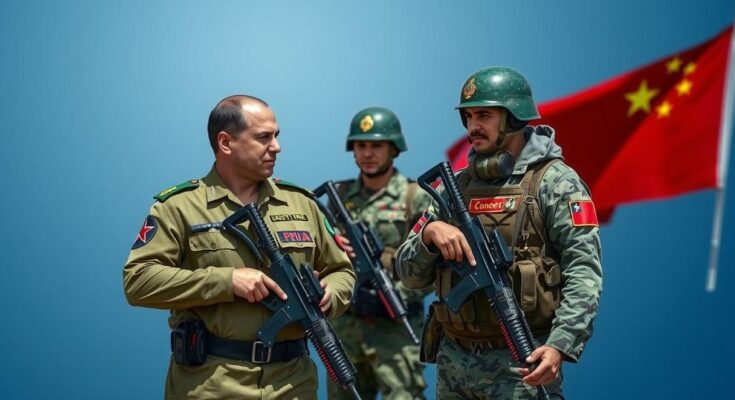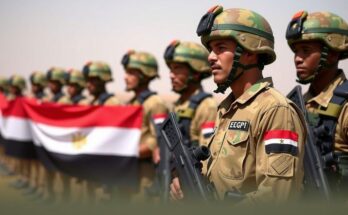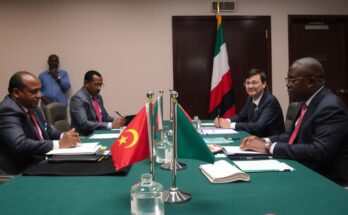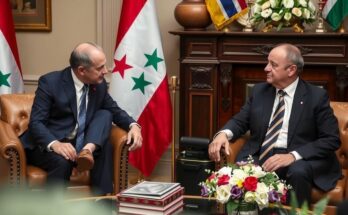Russia and China opposed a U.S. initiative to convert the Kenya-led multinational force in Haiti into a UN peacekeeping mission amidst escalating gang violence. They emphasized that deploying peacekeepers without an established peace could worsen the conflict. There is urgent need for stability in Haiti, but differing views on international intervention methods complicate the situation.
Russia and China have expressed their opposition to a U.S.-led initiative that seeks to convert a Kenya-led multinational force in Haiti into a United Nations peacekeeping mission. During a U.N. Security Council meeting, the two nations voiced their concerns regarding the escalating gang violence in Haiti, which has led to significant instability and an urgent need for support. They cautioned that deploying a peacekeeping mission under the current chaotic conditions may exacerbate the situation rather than contribute to stabilizing the nation.
Haiti is currently grappling with rampant gang violence, which has resulted in the gangs controlling an estimated 85% of the capital, Port-au-Prince. The escalating violence has prompted discussions about international support, including a potential UN peacekeeping force. The United States proposed this change to secure funding for the existing Kenya-led multinational force, which has faced financial difficulties. However, the response from Russia and China highlights the complexities involved in international interventions and the criticism surrounding past peacekeeping missions in Haiti.
The dynamics between international powers regarding Haiti’s security situation underscore the ongoing debate about the appropriateness of foreign intervention. While there is a clear need for effective support to combat gang violence and restore stability, differing opinions on the methods of assistance, particularly concerning the transformation into a UN peacekeeping operation, remain contentious. The situation necessitates a collaborative effort that prioritizes the immediate needs of the Haitian people while considering the implications of international military presence.
Original Source: www.newspressnow.com




